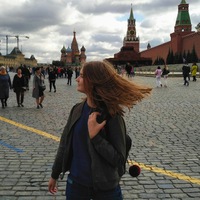
Прочитайте приведённый ниже текст. Преобразуйте слово, напечатанное заглавными буквами в скобках так, чтобы оно грамматически соответствовало содержанию текста. Заполните пропуск полученным словом. «Dad usually comes up with original ideas. Last Sunday Dad __________________(DECIDE) that we should all go on a camping trip.»
Dad usually comes up with original ideas. Last Sunday Dad __________________(DECIDE) that we should all go on a camping trip. The idea came to him while he __________________(READ) an article about camping. The article said that camping brings families together. “Not true”, I smiled. “What about television? It usually __________________(HELP) families to feel a lot more united.” “If the weather is fine, we __________________(GO) on a trip next weekend,” Dad said and put his magazine on the coffee table. I quickly looked over at my __________________(YOUNG) brother, Paul. He gave me a knowing smile, “Do you remember __________________(WE) last trip?” I certainly did. Last summer Dad told us that fishing would be a great activity for our family. We bought four expensive fishing rods and drove for three long hours to a big lake in Virginia.When we got there, we discovered that we __________________(FORGET) to take the fishing rods. Ten minutes later we made another unpleasant discovery: we __________________(NOT/HAVE) the tent which meant we couldn’t stay overnight and we had to drive all the way back home again. We __________________(BE) tired and disappointed with the trip.
Ответы на вопрос

Для того чтобы грамматически правильно преобразовать слова в скобках и заполнить пропуски, нужно учесть контекст и временную форму, используемую в предложении.
Текст с пропусками выглядит так:
"Dad usually comes up with original ideas. Last Sunday Dad __________________(DECIDE) that we should all go on a camping trip.
The idea came to him while he __________________(READ) an article about camping. The article said that camping brings families together.
'Not true,' I smiled. 'What about television? It usually __________________(HELP) families to feel a lot more united.'
'If the weather is fine, we __________________(GO) on a trip next weekend,' Dad said and put his magazine on the coffee table.
I quickly looked over at my __________________(YOUNG) brother, Paul. He gave me a knowing smile, 'Do you remember __________________(WE) last trip?'
I certainly did. Last summer Dad told us that fishing would be a great activity for our family. We bought four expensive fishing rods and drove for three long hours to a big lake in Virginia.
When we got there, we discovered that we __________________(FORGET) to take the fishing rods. Ten minutes later we made another unpleasant discovery: we __________________(NOT/HAVE) the tent, which meant we couldn’t stay overnight, and we had to drive all the way back home again. We __________________(BE) tired and disappointed with the trip."
Теперь давайте разберёмся с каждым пропуском:
DECIDE — Здесь нужно использовать прошедшую форму глагола, так как речь идет о действии в прошлом (в прошлое воскресенье). Правильная форма: decided.
READ — Здесь речь идет о действии, происходившем в момент, когда пришла идея. Поскольку в тексте стоит прошедшее время (came to him), используем форму прошедшего продолженного времени: was reading.
HELP — В данном случае глагол относится к общему утверждению о том, что обычно происходит в настоящем. Поскольку предложение утверждает, что телевизор помогает семьям, нужно использовать форму настоящего времени: helps.
GO — Это будущее время, так как речь идет о поездке в следующее воскресенье. Используем конструкцию будущего времени с "if" — will go.
YOUNG — Здесь требуется притяжательное прилагательное в сравнительной степени (младший брат), то есть younger.
WE — Здесь пропущено подлежащее, и нужно поставить личное местоимение в форме родительного падежа: our.
FORGET — Это действие произошло в прошлом, когда они забыли взять рыболовные удочки. Используем прошедшую форму глагола: forgot.
NOT/HAVE — Здесь необходимо использовать отрицательную форму прошедшего времени глагола "have". Поскольку речь идет о несостоявшемся событии (они не взяли палатку), правильная форма: did not have.
BE — В последнем пропуске речь идет о том, как они чувствовали себя после неудачной поездки. Нужно использовать форму прошедшего времени глагола "to be": were.
Полный текст с заполненными пропусками:
"Dad usually comes up with original ideas. Last Sunday Dad decided that we should all go on a camping trip.
The idea came to him while he was reading an article about camping. The article said that camping brings families together.
'Not true,' I smiled. 'What about television? It usually helps families to feel a lot more united.'
'If the weather is fine, we will go on a trip next weekend,' Dad said and put his magazine on the coffee table.
I quickly looked over at my younger brother, Paul. He gave me a knowing smile, 'Do you remember our last trip?'
I certainly did. Last summer Dad told us that fishing would be a great activity for our family. We bought four expensive fishing rods and drove for three long hours to a big lake in Virginia.
When we got there, we discovered that we forgot to take the fishing rods. Ten minutes later we made another unpleasant discovery: we did not have the tent, which meant we couldn’t stay overnight, and we had to drive all the way back home again. We were tired and disappointed with the trip."
Таким образом, все слова были преобразованы в правильные формы в соответствии с контекстом.
Похожие вопросы









Топ вопросов за вчера в категории Английский язык









Последние заданные вопросы в категории Английский язык





-
Математика
-
Литература
-
Алгебра
-
Русский язык
-
Геометрия
-
Английский язык
-
Химия
-
Физика
-
Биология
-
Другие предметы
-
История
-
Обществознание
-
Окружающий мир
-
География
-
Українська мова
-
Информатика
-
Українська література
-
Қазақ тiлi
-
Экономика
-
Музыка
-
Право
-
Беларуская мова
-
Французский язык
-
Немецкий язык
-
МХК
-
ОБЖ
-
Психология
-
Физкультура и спорт
-
Астрономия
-
Кыргыз тили
-
Оʻzbek tili











